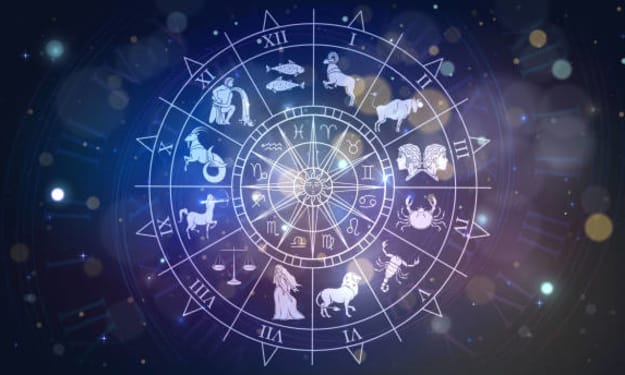
Charles Robert Darwin (February 12, 1809 - April 19, 1882) was a British naturalist, best known for his work on the theory of evolution by natural selection. Charles Robert Darwin (1809-1882, also known as Charles Darwin) was a British naturalist and biologist who was known for his theories on evolution and his understanding of the process of evolution. Darwin developed a vision for the evolutionary species he called the evolutionary process according to his youth training, his team of advisers and colleagues, and the many experiences he had made during the five-year HMS Beagle ride, a key strategy for natural selection.
In 1831, Charles Robert Darwin set sail for HMS Beagle on a five-year voyage around the world, studying a variety of plants and developing his theory of evolution. He began to develop a theory of evolution that contradicted the popular views of other naturalists of his day.
Darwin began writing about his findings in the Research Journal after returning to England in 1836, which was published in Captain Fitzroy's Large Narrative of the Voyage of the Beagle published by Zoology. In 1858, Darwin presented his theory of evolution in a book read at a conference of the Linnean Society after years of further scientific research. In June 1909, Darwin was honored by more than 400 official scientists from around the world who came together to celebrate the centenary and the fiftieth anniversary of the emergence of Cambridge species, agreeing several times with his view that natural selection was an important, but not special, method of evolution.
Although Darwin has been interested in natural history since his time as a geologist, his inclination is evident in his record of a five-year exploration trip to parts of South America. This time, he traveled to Bathurst to explore the geology of the Blue Mountains and collect native animals and flowers.
The National Park named after him was established in Port Darwin to protect endangered species, including mangroves and other important areas for the people of Larrakia. Born in 1809 in Shrewsbury, Shropshire, he was fascinated by nature from a young age.
In late 1836, he embarked on a five-year voyage to HMS Beagle around the world, enabling him to undertake important research that contributed greatly to the development of his pioneer theory of evolution by natural selection. In 1842 he wrote his first essay, later known as The Evolution of Natural Selection, for his personal use. Concerned about the public and religious acceptance of his teaching, Darwin did not disclose his views until 1858, when he made a proclamation in conjunction with another British naturalist Alfred Russel Wallace who would come out in the same spirit.
In 1845, he published ideas for a new type of finch that he had acquired in the Galapagos Islands, and he said that he thought the original type had been transformed into another. He has come to the conclusion that the adaptability and evolution of many species of living things, from small fish to tortoises on the islands, is due to natural selection. Some believe that Darwin was influenced by what he knew about geology, especially the stone-laying system.
Years ago, Charles Darwin studied the natural sciences and sought evidence of his theories. He wrote and published books and essays on other topics of natural history, most notably the diversity of animals and plants (1868) and The Descent of Man (1871). His most famous work, The Origin of Species, explains the evolution and provides many supporting examples. One of the influences on our knowledge of life on earth was Charles Darwin (1809-1882) in English. Darwin's ongoing work has shown that the difference between humans and animals is standard, not genetic.
Charles Darwin, entirely Charles Robert Darwin (born February 12, 1809, in Shrewsbury, Shropshire, Victorian England; died April 19, 1882, in Downes, Kent) was an English naturalist whose evolutionary theory was discovered by natural selection as the basis for modern evolutionary studies. His nonreligious biology appealed to the predominant class of professional scientists, and with his death, the natural phenomena became widespread in science, literature, and politics.
Charles Darwin was born on 12 February 1809 in Shrewsbury, England, and died on April 19, 1882, in Downs House, Kent. Susannah Darwin came from a clay family; his father Josiah Wedgwood made little money from the production of high-quality pottery. Robert Robert was a successful physician and his father, Erasmus Darwin, was a well-known physician as a poet of the natural world.
Darwin's theory of evolution states that species that survive the process of evolution — those that evolve and adapt to meet the changing needs of their environment - thrive and reproduce, while the invariant species multiply and die. Darwin's assertion that evolution is a fact has left its mark on the teachings of the Bible. Darwin's greatest work, based on some kind of natural selection based on his observations of the Galapagos Islands and the Darwin birds, was under attack for not supporting the Biblical account of creation.
Some naturalists believed at the time that species evolved from the beginning of the world and evolved according to natural history. Many definitions of competition and competition with less natural selection, but only when it came to the modern emergence of evolution in the 1930s and "1950s" when there was widespread consensus about natural selection as a fundamental form of evolution.
The theory of genetics suggests that humans of a certain species are more likely to survive in their own environment and pass on their genes to the next generation if they have inherited traits from their parents. In this way, these traits spread within a particular species, leading to the formation of a new species.
About the Creator
Radha Karki
I am very curious ar learning new things, love to read books, paintings, art, and love singing too.





Comments
There are no comments for this story
Be the first to respond and start the conversation.